Compared with the two-step enzymatic capping, the one-step co-transcriptional capping method can significantly reduce the process flow. The method is result-oriented and involves the addition of cap analogs to the in vitro transcription (IVT) reaction. Cap analogs can be introduced at the start of transcription, and mRNA with cap structure can be obtained upon completion of transcription. Current third-generation cap analogs can avoid reverse capping and directly add Cap 1 structure to the transcription product.
For considerations of mRNA in vivo immunogenicity and translation efficiency, the IVT process often adopts certain kinds of modified NTPs, and common modified nucleotides are pseudouridine (Ψ), N1-methyl-pseudouri-dine (N1Ψ), and 5-methylcytosine (5mC).
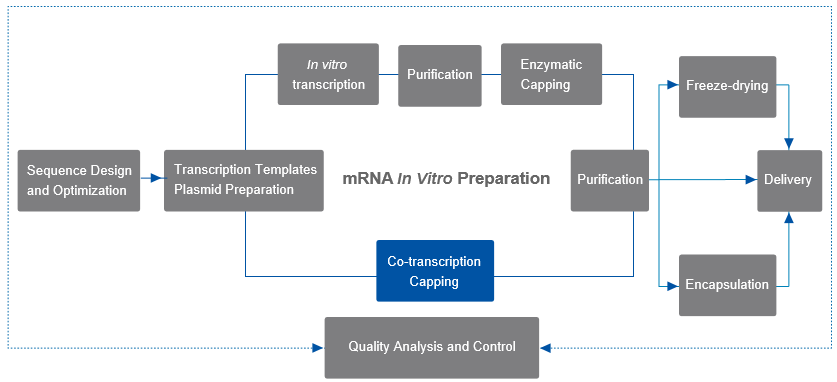
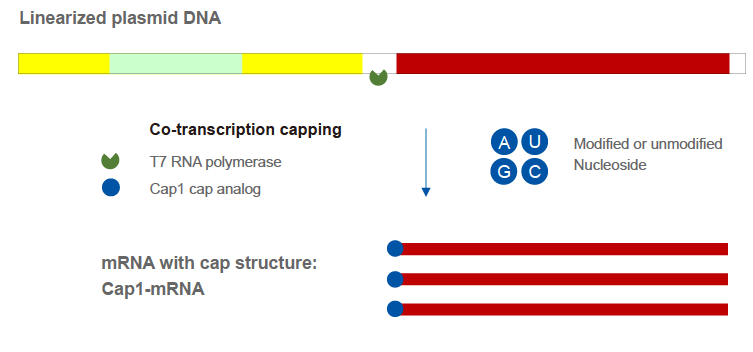
Figure: Diagram of mRNA Co-transcriptional and Capping Reaction
Service Details
Service |
Service Details |
Delivery Period (Workday) |
Co-transcriptional capping |
In vitro transcriptional response (Clean Cap analog) |
1-2 |
| Nucleotide modifications (Ψ/N1Ψ/5mC) |
| DNA template removal (DNase I) |
IVT condition optimization - optional |
Reaction component design and optimization |
3-7 |
Our Features
- Diversified Nucleotide Modification Strategies
Multiple optional nucleotide modification strategies can improve protein expression.
- Optimized Reaction System
Achieve a high transcription ratio and high capping efficiency.
Achieve a capping rate of more than 95%.
- Stringent Control of RNase
Prevent mRNA degradation effectively by stringently controlling of RNase in the experimental environment and consumables.
Case study
Yaohai Bio-Pharma has built a mature co-transcriptional capping process platform, using clean cap analogs to directly add Cap1 structure while avoiding reverse capping. After standardized sample pre-treatment and capillary electrophoresis (CE) detection, the capping rate of enhanced green fluorescent protein (eGFP) mRNA can reach more than 95%.
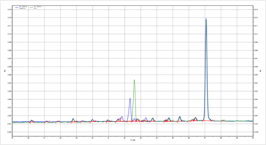
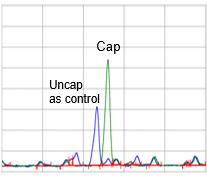
eGFP mRNA capping efficiency of more than 95%
The eGFP mRNA and mCherry mRNA prepared by co-transcriptional capping are transfected into 293T cells, respectively, and a strong fluorescent signal is observed after 48h, suggesting that the mRNA is efficiently expressed in 293T cells.
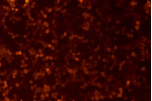
Expression of eGFP mRNA and mCherry mRNA in 293T Cell
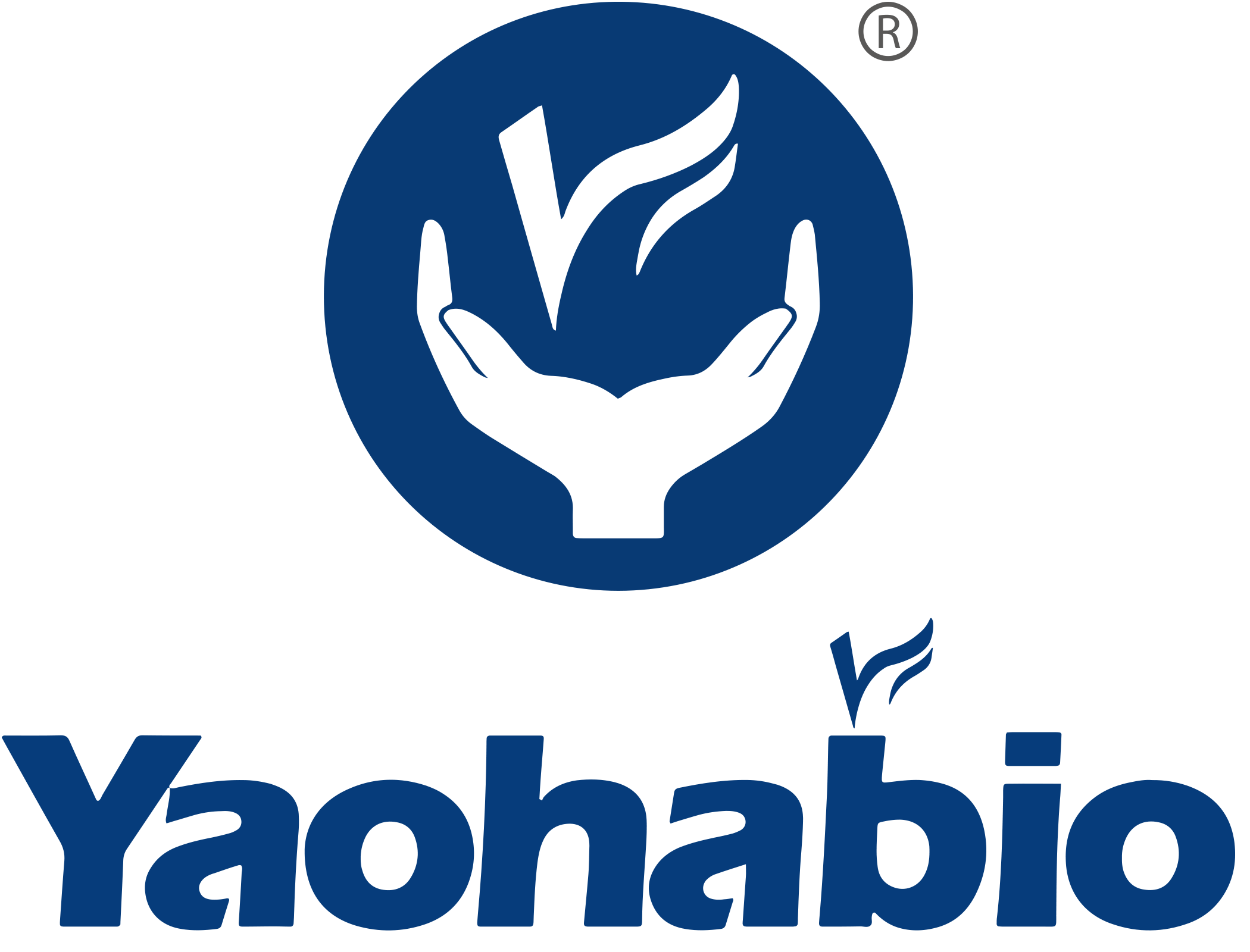
 EN
EN
 AR
AR
 HR
HR
 CS
CS
 DA
DA
 NL
NL
 FI
FI
 FR
FR
 DE
DE
 EL
EL
 IT
IT
 JA
JA
 KO
KO
 NO
NO
 PL
PL
 PT
PT
 RO
RO
 RU
RU
 ES
ES
 SV
SV
 IW
IW
 ID
ID
 LV
LV
 LT
LT
 SR
SR
 SK
SK
 SL
SL
 UK
UK
 VI
VI
 ET
ET
 HU
HU
 TH
TH
 TR
TR
 FA
FA
 AF
AF
 MS
MS
 BE
BE
 MK
MK
 UR
UR
 BN
BN






